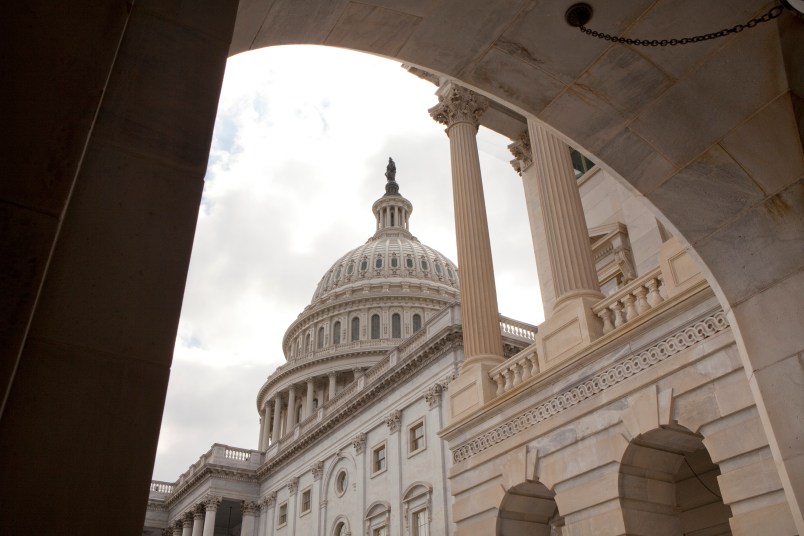WASHINGTON (AP) — The Senate passed a bill Thursday that would avoid a partial shutdown of federal aviation programs and provide tax relief for hurricane victims.
The House passed the bill earlier in the day with provisions that would have expanded the private flood insurance provisions, just hours before members planned to leave town for the weekend. The Senate stripped the flood insurance provisions from the bill, then passed the revised measure on a voice vote and sent it back to the House. There are procedures House Republican leaders can use to pass the revised measure without a full, in-person vote.
The legislative back-and-forth comes two days before the end of the federal budget year, when authority for the Federal Aviation Administration and several health programs included in the bill are due to expire.
If the FAA’s authority were to expire, it would still continue to operate the nation’s air traffic system and controllers would work without pay. But some of the agency’s other work, possibly including efforts to restore hurricane-damaged radar and other navigational aids in the Caribbean, would come to a halt.
“It’s necessary that we continue to fund the FAA so they can get that radar back up and working,” said Rep. Pete Sessions, R-Texas, urging lawmakers to vote for the bill. “Now is not the time to play games with an essential program.”
The bill also includes five tax relief provisions for victims of Hurricanes Harvey, Irma and Maria. Money from 401(k) or other retirement accounts could be withdrawn without penalty for storm-related expenses, for example. Another provision would lift limits on charitable tax deductions for people making hurricane-related donations.
House Democrats said they wanted to include in the bill as many as 21 tax relief provisions that Congress had provided for victims of past hurricanes, but were forestalled by Republicans. They strongly objected to GOP legislative tactics, saying normal procedures for committee consideration of the measure were circumvented. The House bill was passed on a vote of 268-155, mostly along party lines.
The House bill would have permitted homeowners with Federal Housing Administration-backed mortgages to choose private flood insurance instead of federal flood insurance if they wish. Most of the private flood insurance market today is commercial properties.
The insurance industry sought the change, saying it would give consumers another option and relieve some of the financial pressure on the federal program by reducing the number of homeowners it has to serve. The program is more than $30 billion in debt, lawmakers said.
“What the American people are craving for is competition in the products they have to protect their valuable assets,” said Rep. Dennis Ross, R-Fla. “Government shouldn’t be in the business of insurance.”
But Democrats and some Republicans said the change would allow private insurers to cherry-pick the least risky homeowners, further weakening the federal program by leaving it with homeowners who live in the most flood-prone areas.
Democrats also complained that Republicans refused to add extensions to the bill for a program that funds community health centers, due to expire on Saturday, and children’s health insurance, due to expire in December. Republicans said there was enough money available to keep the programs going, and they would be extended through the normal committee process.
The bill would extend programs for Native Americans at risk of diabetes, medical education, and a Medicare demonstration project.






